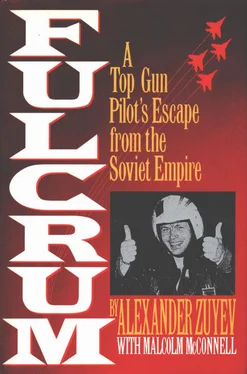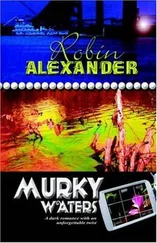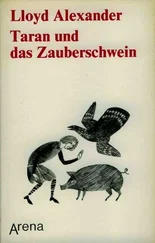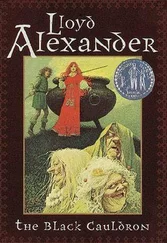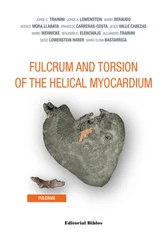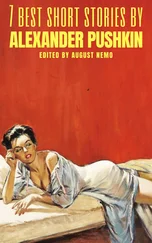His statement, combined with my own wound, bolstered my self-defense appeal against extradition. The Turks asked me to write a complete account of my escape. They assured me that this statement would provide the evidence needed to deny the Soviet government’s extradition request, scheduled to be considered at a judicial hearing in a few days. But the Turks also told me there was nothing they could do to prevent the Soviet Air Force from reclaiming the fighter.
When the translator explained all this, I swore bitterly. “Please don’t return that fighter,” I told the Turkish officers. “It’s a weapon and I risked my life to bring it here. If I had known you would send it back, I would have ejected.”
Again I used my left hand to write a message, this time a formal request that the Turks refuse to return the fighter.
But I was too late. That afternoon, maintenance officers from my regiment quickly loaded all the missiles aboard the big Il-76. Ironically the pilot who flew the plane back to Tskhakaya was none other than Lieutenant Colonel Shatravka, the staff officer I had defeated in the dogfight on my last official flying day as a Soviet pilot.
But the Turks were good to their word about my asylum. They forwarded my request to the American embassy in Ankara. And a week later I was flown to the capital under heavy guard. The Turks had been dealing with the Soviets for seventy years. They knew that the Organs of State Security were perfectly capable of assassinating me here in Turkey.
Before I could be turned over to the Americans, however, there was one last formality to complete. The Soviet ambassador and his haughty KGB rezidant were brought to the heavily guarded guesthouse in the suburbs where I was staying. He tried to cajole me into returning to the Rodina, where I would receive medical treatment for both my physical wounds and the psychological stress that had provoked this unfortunate aberration. I knew all about such psychiatric treatment. I told him I was not interested.
Next the ambassador opened his briefcase with a dramatic flourish. “Alexander Mikhailovich,” he said, “if you won’t consider your own welfare, at least think of your poor mother.” He slowly reached into the handsome leather case. “I have a letter from your mother, in which she appeals to you to return to the Motherland. I…”
“Don’t waste our time with such ‘letters,’” I snapped. “They’re either forgeries or were forcibly obtained. I know my mother’s feelings about my welfare much better than you.”
The ambassador glowered, then slammed shut his briefcase. His last ploy had failed.
I was amazed how friendly and helpful the Turks were. For years I had been taught they were ruthless militarists, pawns of imperialists. But their kindness never stopped. The doctors were concerned about possible hidden damage to my skull and neck because of the constant headaches I was suffering. They arranged a CAT scan examination at the most modern hospital I had ever seen. The results were negative.
Then one afternoon as I listened to the Russian language program on the Voice of America, I heard the announcement that the U.S. State Department had just granted me political asylum. I would be delivered to the Americans the next day.
I stood in the warm breeze, watching the ravens sail up the thermal currents above the wheat fields. Even though I had not succeeded in delivering the MiG-29 and its missiles to NATO, my years of experiences with the fighter were certainly valuable.
The American convoy approached along the narrow road from the east, a sedan and two security vans. Unlike their Turkish counterparts, the young American guards wore blue jeans. The ambassador climbed out of his sedan and shook my hand. Then he motioned for me to enter the backseat with him. I had never seen such a luxurious car. An interpreter with a foreign accent leaned over from the front seat to translate.
“I would like you to confirm your request for political asylum in the United States,” the ambassador said cheerfully. He seemed like such a young man. In the Soviet bureaucracy no one his age could have advanced so high.
I began to answer, but the ambassador interrupted, telling me to make the request formal by stating my full name.
“I am Alexander Mikhailovich Zuyev,” I solemnly recited. “I want to live in the United States of America as a free man. I am asking for political asylum.”
The ambassador smiled and shook my hand again. “Alexander Zuyev, you have been granted political asylum in the United States. Welcome to America.”
* * *
Northern Virginia,
Christmas Day,
December 25, 1991, 12:20 P.M.
I stood on the soft carpet of my living room, gazing at the familiar television image of the red brick Kremlin walls. It was night in Moscow but a bright noon on this Christmas Day in Virginia. My little brother, Misha, now a tall, husky boy of ten, stared silently at the television screen.
The night before, Misha had told me what his life had been like in Samara after my escape. The teachers at his school had publicly castigated the “brother of the traitor.” They encouraged older boys to beat him daily. He endured all that. Every night he came home from school and washed away the caked blood from his face before my mother saw him. He was determined to accept this suffering stoically. The KGB was pressuring my mother ruthlessly, and Misha did not want to add to her misery.
As I had hoped, the KGB pressure on my family had been more of an annoyance than an actual menace. They had been questioned repeatedly, but not harmed in any way. Glasnost had protected them. And the rapidly changing political conditions in the Soviet Union had permitted them to request official authorization to emigrate without fear of retribution. Their first request for tourist visas to the West had been denied, as I assumed it would be. But then, in 1991, they finally managed to obtain refugee status, and the Soviet government reluctantly granted them exit visas. After several false starts, Mother, Valentin, and Misha had arrived at Kennedy Airport only ten days earlier, the best Christmas present I could imagine.
My mother was cooking in the kitchen. I heard the electronic chime as she boldly investigated the mysteries of the microwave oven.
The red hammer-and-sickle banner of the Soviet Union rippled in the floodlit wind above the Kremlin. The CNN announcer proclaimed the flag of the “former Soviet Union” was about to be lowered for the first time in seventy-four years. It would never rise again. That afternoon in Moscow, Mikhail Sergeyevich Gorbachev had delivered his resignation speech as the last President of the Soviet Union. He had then signed a decree transferring control of the former Soviet military to the Russian president, Boris Yeltsin.
Waiting to watch the Soviet flag drop, I thought of the eventful thirty months that had passed since I had climbed into the ambassador’s sedan beside that Turkish wheat field.
Before 1989 had ended, the Berlin Wall had crumbled. Communism began to die all across Eastern Europe. One by one the nations enslaved by the Soviet Empire threw out their Communist bosses and embraced democracy. And, after ten years of bloody struggle, all Soviet forces finally withdrew from Afghanistan.
In the Soviet Union itself, however, Communism would take longer to die.
But as I worked with my new American military colleagues, I was confident that the criminal clique that controlled my former country would one day be defeated. Meanwhile, I helped the American Navy, Marine Corps, and Air Force prepare to defeat Soviet-trained Iraqi pilots flying Soviet-supplied fighters in the Persian Gulf War. One of the F-15C units I worked with destroyed five MiG-29s and over eleven MiG-23s and Sukhoi attack aircraft during Operation Desert Storm. Before I began assisting in the intense training of these American pilots, they had believed many of the comforting myths about obsolete Soviet equipment and tactics. But I had been able to convince them that the MiG-29 Fulcrum, armed with modern missiles and flown by a skilled pilot, represented a dangerous threat. They took my words to heart.
Читать дальше
